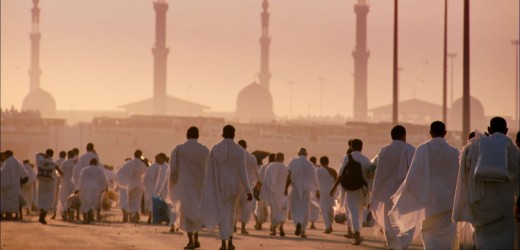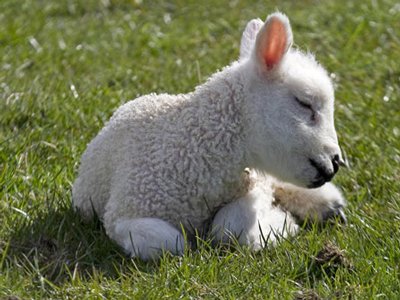Upon learning of my veganism, skeptics (particularly those who are more religiously inclined) have been known to ask about my stance on the idea and consequent practice of sacrifice in Islam. I’ve touched on this subject in particular before, but recently an event took place that made me question it on a much deeper level.
But before I delve in to the ethics of animal sacrifice in Islam – a quick refresher for those of you who are not familiar with it.
Also referred to as ḏabiḥa (ذَبِيْحَة), animal sacrifice is ritually offered during Eid Al Adha (known as the festival of sacrifice). Worldwide, muslims preform a sunnah(mimicking a good deed done by a prophet) to the Prophet Ibrahim by sacrificially killing either a lamb, sheep, goat, cow or less commonly a camel. The meat of the offering is divided into parts – the largest portion is given to the poor, the second largest to the person’s relatives, and the smallest portion to the person’s direct family. The act of sacrifice is done to help the less fortunate and to commemorate Ibrahim (Abraham)’s willingness to sacrifice his son Ismael at God’s request.
When I was growing up, my family performed this almost every year. My brother and I would cower in the back of the garden watching a butcher read a blessing over a sheep he had hauled over in the back of his rickety truck. As per Halal requisites, he would feed it some water, say Bismillah (in the name of God) and swiftly slit it’s throat. I sometimes find it odd that I never really questioned the practice while growing up – or that I continued to eat meat for years after, but something about seeing the ritual year-on-year from such a young age left me desensitized in sense. It wasn’t till I started eschewing meat altogether that I started to question this unnecessarily brutal ritual, which stood out to me like a sore thumb in a religion that preached compassion, love and understanding for all living beings.
Fast forward a good 20 years or so. Recently a string of unfortunate events befell my family; my mother, brother and I all had bad accidents almost consecutively. Luckily we’re all safe and well – and nothing has been compromised that cannot be replaced. In spite of that my mother insisted that these happenings were an act of the evil eye, and she wanted to do something to ward it off; a sacrifice.
I hardly had time to react, when she told me they would be slaughtering a sheep in our garage, then handing out all the proceeds to the poor. It had been years since I’d seen that reel play in front of my eyes, and I was unsure how to deal with it. Should I protest? Should I suggest that we simply offer money to charity in lieu of a sacrifice? For some reason I felt it would be best not to interfere. So the morning of said sacrifice I made myself scarce, and returned only well after it was all over – though the smell of blood was pungent and piercing. It left an awful taste in my mouth and in my conscience. Needless to say it became clear to me that I disagree with this practice through and through.
Despite the fact that it is a ritual occurrence in our religion and culture; many don’t realise that sacrifice is NOT a pillar of Islam. In order to understand the institution of sacrifice in Islam one must consider the context in which it was first introduced.
Historically, pre-Islamic Pagan Arabs, Jews and Christians all offered some sacrifice in the hopes of attaining protection, acceptance or material gain from God – but the notion of “vicarious atonement of sin” (that is absolving one’s sins through the blood of another) is not mentioned at all in the Qur’an. Neither is the idea of gaining favor by offering the life of another to God – all that is demanded is one’s personal willingness to submit one’s ego and will.
Essentially, Muslims are not asked to kill an innocent animal to appease a higher power. So why did it happen all those years ago, when the Sunnah of sacrifice first came to be? Again – let’s revisit context. It must be considered that the Qur’anic verses that discuss animal sacrifice – in relation to the circumstances under which these revelations were received – resulted in people trying to make a personal sacrifice by sharing their limited means of survival with poorer members of the community.
Islam’s perception towards ritual slaughter is not one of blood atonement, but rather the act of thanking God for one’s sustenance and the personal sacrifice of sharing one’s possessions and valuable food with fellow less fortunate people. The ritual itself is NOT about the sacrifice – it was about sharing the best of what you had.
There are several Qur’anic verses that highlight the true purpose and objective behind sacrifice – but of all of them allude to the same thing. The act of animal sacrifice is pertinent to the role animals played in Arabian society at the place and time. Humans were commanded to give thanks to God and praise Him for the sustenance provided by him by sacrificing something of value to themselves to demonstrate their appreciation for what they have been given.
In this case it was the very animals on which their survival was based, but as we all know, times have changed. Thanks to the advent of modern agriculture and farming methods – we no longer need animals to survive – the millions of people turning vegan and vegetarian each year are living proof of that.
If my religion asks that I offer something I deem valuable to those less fortunate to give thanks for my own blessings and sustenance – I will not hesitate. I will offer a basket of fresh organic vegetables, whole grains, beans, and lentils. I will offer money, clothes, books and toys. But I will not compromise the life of an innocent animal and inflict pain and suffering where it is not needed.
Comments
comments


